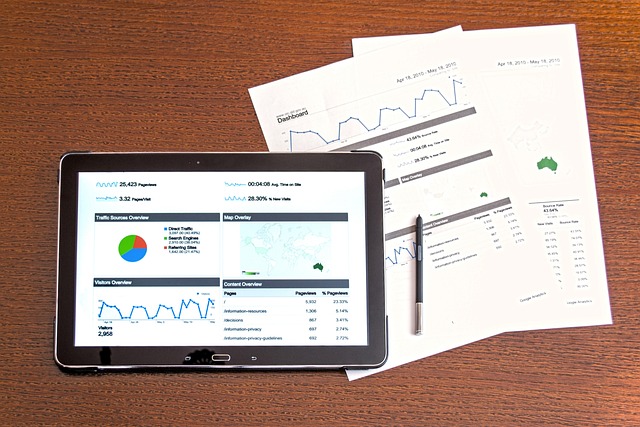AI commercial real estate (CRE) lease analytics platforms are transforming the industry by using machine learning algorithms to analyze vast data from diverse sources, providing critical insights for informed decision-making. A key feature is AI stakeholder communication bots that automate tasks like data collection, reporting, and basic lease negotiations, boosting efficiency and reducing costs. These bots enable stakeholders to focus on strategic planning and relationship building, potentially increasing occupancy rates through personalized interactions. While implementing AI offers benefits such as predictive analysis and optimized pricing, challenges include data privacy concerns, regulatory compliance, and algorithm bias. Continuous monitoring and refinement of AI models, along with strategic stakeholder communication using bots, can mitigate these issues, ensuring enhanced decision-making that maximizes returns and minimizes risks.
“Revolutionize your commercial real estate (CRE) lease management with AI analytics platforms—the future is here. This article explores how Artificial Intelligence (AI) is transforming lease analytics, offering unprecedented insights into CRE markets. We delve into the benefits of enhancing stakeholder communication with AI bots, improving transparency and efficiency. From understanding complex data to identifying trends, these platforms provide valuable insights.
However, challenges exist when implementing AI in LEASE analytics, including data privacy concerns and initial setup costs. Discover how AI stakeholders can overcome these hurdles to stay ahead in today’s competitive CRE landscape.”
- Understanding AI Commercial Real Estate Lease Analytics Platforms
- Enhancing Stakeholder Communication with AI Bots
- Benefits and Challenges of Implementing AI in LEASE Analytics
Understanding AI Commercial Real Estate Lease Analytics Platforms

AI commercial real estate lease analytics platforms are transforming the way stakeholders interact with and understand rental properties. By leveraging machine learning algorithms, these innovative tools analyze vast amounts of data from various sources to provide insights into market trends, tenant behavior, and property performance. This data-driven approach empowers investors, brokers, and landlords to make informed decisions about leasing strategies, pricing adjustments, and portfolio management.
One of the key benefits is improved AI stakeholder communication bots. These bots can automate repetitive tasks such as data collection, reporting, and even basic lease negotiations, freeing up time for stakeholders to focus on strategic planning and relationship building. This enhanced efficiency not only reduces operational costs but also allows for more personalized interactions with tenants, fostering stronger partnerships and potentially increasing occupancy rates.
Enhancing Stakeholder Communication with AI Bots

AI bots are transforming commercial real estate (CRE) lease analytics platforms by enhancing stakeholder communication. These intelligent agents can efficiently process and understand complex data, enabling seamless interaction with tenants, landlords, and brokers. With their ability to answer queries, provide insights, and facilitate quick decision-making, AI bots streamline communication channels, making information accessible 24/7.
By integrating AI bots into CRE lease analytics, platforms can offer personalized experiences tailored to individual stakeholders’ needs. Whether it’s delivering real-time market trends, negotiating lease terms, or managing maintenance requests, these bots improve efficiency and foster better relationships between all parties involved. This innovative approach not only simplifies the leasing process but also strengthens trust and transparency in the CRE sector.
Benefits and Challenges of Implementing AI in LEASE Analytics

Implementing AI in lease analytics offers significant benefits for commercial real estate professionals. These intelligent systems can process vast amounts of data, including market trends, property performance metrics, and tenant behavior patterns, to provide valuable insights. By leveraging machine learning algorithms, AI lease analytics platforms can predict future occupancy rates, identify potential risks, and optimize rental pricing strategies. This enhances decision-making processes for investors, landlords, and brokers, enabling them to maximize returns and mitigate potential losses.
However, challenges exist when integrating AI into this domain. Data privacy and security are paramount concerns, as lease agreements often contain sensitive information. Ensuring compliance with regulations like GDPR or CCPA while maintaining data integrity is crucial. Additionally, the quality of insights depends heavily on the accuracy and comprehensiveness of the underlying data. Bias in algorithms due to incomplete or skewed datasets can lead to flawed recommendations. Thus, continuous monitoring and refinement of AI models are necessary to address these challenges effectively.
AI commercial real estate lease analytics platforms are transforming how stakeholders interact and make informed decisions. By leveraging AI bots for enhanced communication, these platforms streamline processes, offer data-driven insights, and improve overall efficiency. While implementing AI in lease analytics comes with benefits like improved accuracy and faster analysis, challenges such as data privacy concerns and the need for specialized skills must be addressed. As the technology continues to evolve, AI stakeholder communication bots will play a pivotal role in shaping the future of commercial real estate leasing.
